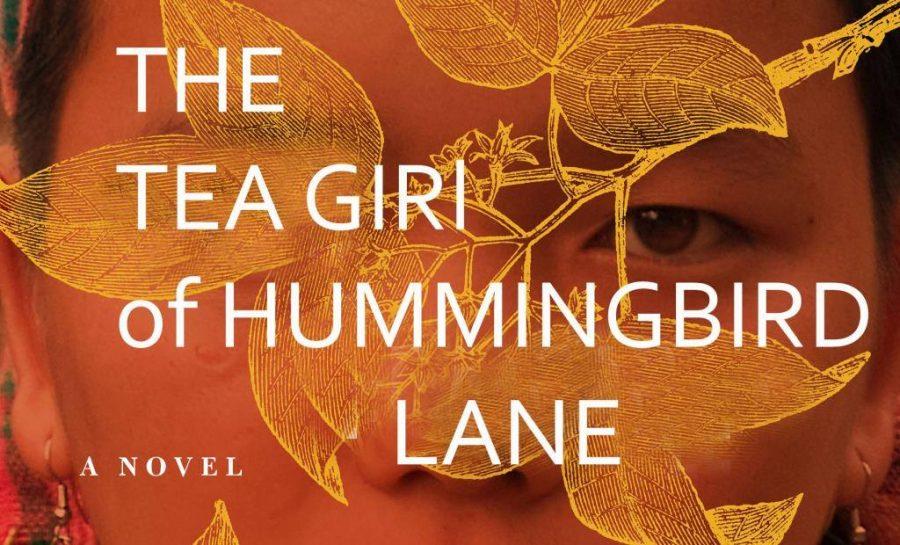Relationships are hard. Relationships with our parents can be even harder. In honor of Mother’s Day, here are five books that explore motherhood and the ways it intersects with complicated issues like infertility, adoption, trauma, divorce and identity.
“The Tea Girl of Hummingbird Lane” by Lisa See
A story of separation and reconciliation, See’s tumultuous, beautiful novel follows the story of Li-yan and her daughter, Haley, whom she put up for adoption. Beginning in a village in China and taking us all the way to Los Angeles, the novel chronicles Li-yan’s pain as she has a child out of wedlock, as she struggles in her relationship with tradition and as she becomes acclimated to Western culture after immigrating. We also empathize with Haley as she grapples with her identity in the context of her adoption and estranged culture. As See slowly weaves their stories together, she honors the bond between a mother and daughter without smoothing over the painful intricacies of their relationship.
“One Part Woman” by Perumal Murugan
Burned in the streets for its daring, confrontational depiction of the stigma surrounding female infertility and the lengths to which some go to have children, Perumal Murugan’s “One Part Woman” is a heartbreaking read. Set in the Kongu region of south India, the novel follows Kali and Ponna, a young couple who have been married for 12 years and cannot bear children.
After leaving no stone unturned, no superstition unfulfilled and no shrine not worshipped, they resort to engaging in an ancient cultural tradition in which for one night, married women can sleep with a man other than their husbands in hopes of becoming pregnant.
The man is regarded as a god and their child a demigod. Despite the novel being fiction, Murugan based his work on evidence of similar practices he found in Tamil Nadu in Madras, India. Indicative of the blame placed on women when they face problems with conception, “One Part Woman” shines a light on the dark struggles that can accompany motherhood.
“What My Mother and I Don’t Talk About: Fifteen Writers Break the Silence” edited by Michele Filgate
What began as an online essay about Filgate’s abuse at the hands of her stepfather evolved into a long-overdue conversation about the boundaries in mother-child relationships and, eventually, a book. The collection’s essays are not all’s-well-that-ends-well anecdotes, but rather raw insights into the pressures put onto children and mothers alike to exist solely for one another. Forcing us to look past the title of mother and instead see a woman, a human capable of making mistakes, the brilliant collection is an important and fresh read.
“The Color of Water: A Black Man’s Tribute to His White Mother” by James McBride
This beautiful memoir follows the life of both James McBride — Distinguished Writer in Residence in NYU’s Department of Journalism — and his mother, Ruth, who was born into a white Jewish family with a racist, abusive father. When Ruth and her black boyfriend and later husband, Dennis, become pregnant, she is disowned. Giving insight into the hardships of motherhood, especially after Dennis dies of lung cancer, the memoir recounts Ruth’s story as she balances her own issues with identity while raising children with the highest of expectations of them. Each of her 12 children go on to be wildly successful, and McBride is no exception. By drawing parallels between his own life and his mother’s, McBride allows us, and consequently himself, to see Ruth as a strong woman with her own identity, outside of his relationship to her. Awe-inspiring and surprising, the memoir reconciles identity with experience, all with the utmost respect for Ruth.
“What We Lose” by Zinzi Clemmons
A montage of love and loss, this vulnerable, semi-autobiographical novel was partly inspired by the death of Clemmons’ mother. Following the unconventional life of Thandi, a girl born to a South African mother and American father, the novel spans her childhood, divorce and close relationship with her mother who dies of cancer. Though fiction, the novel taps into the chaos and heartbreak that accompanies very personal experiences, as some of the novel was based on Clemmons’ real life. While raising questions about how to deal with the death of her mother, Clemmons portrays how loss can shatter our world in ways that comfort us, telling us we are not alone.
Email Aashna Agarwal at [email protected].























































































































































